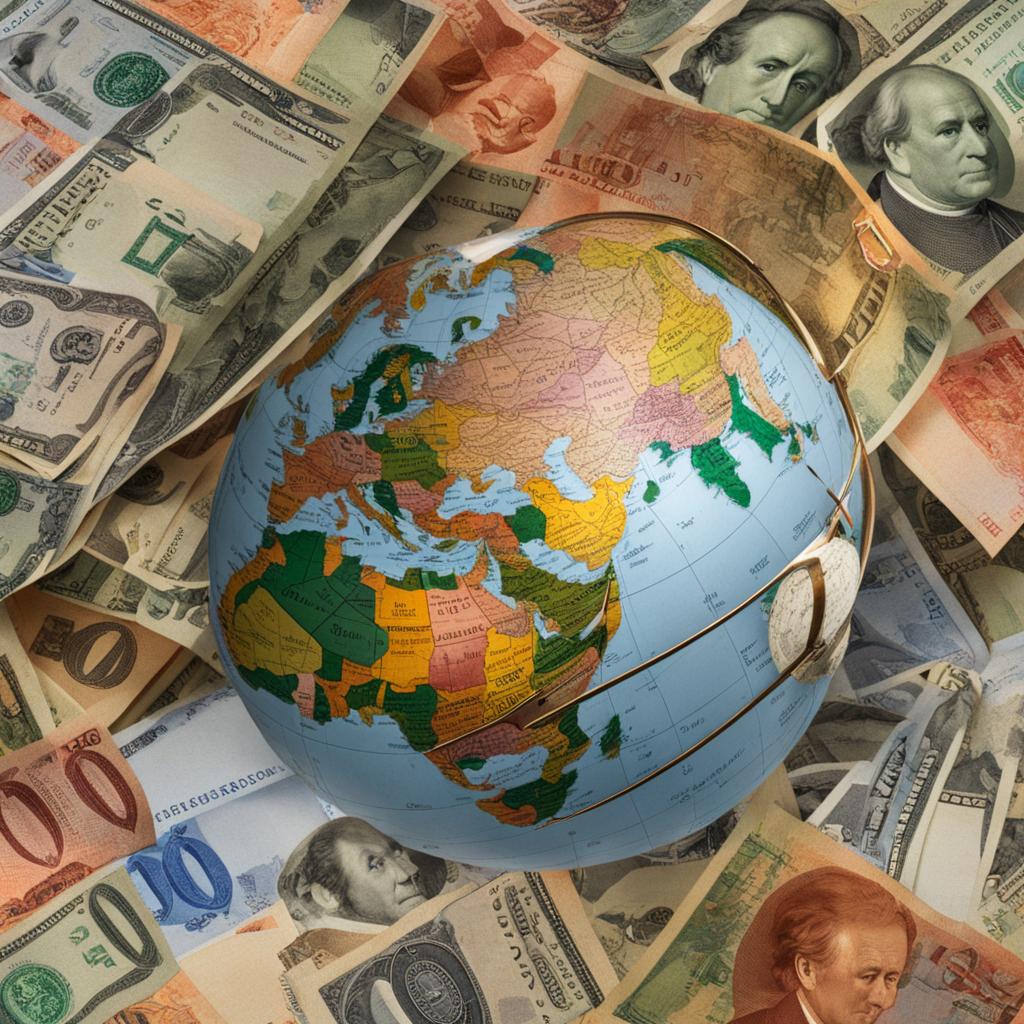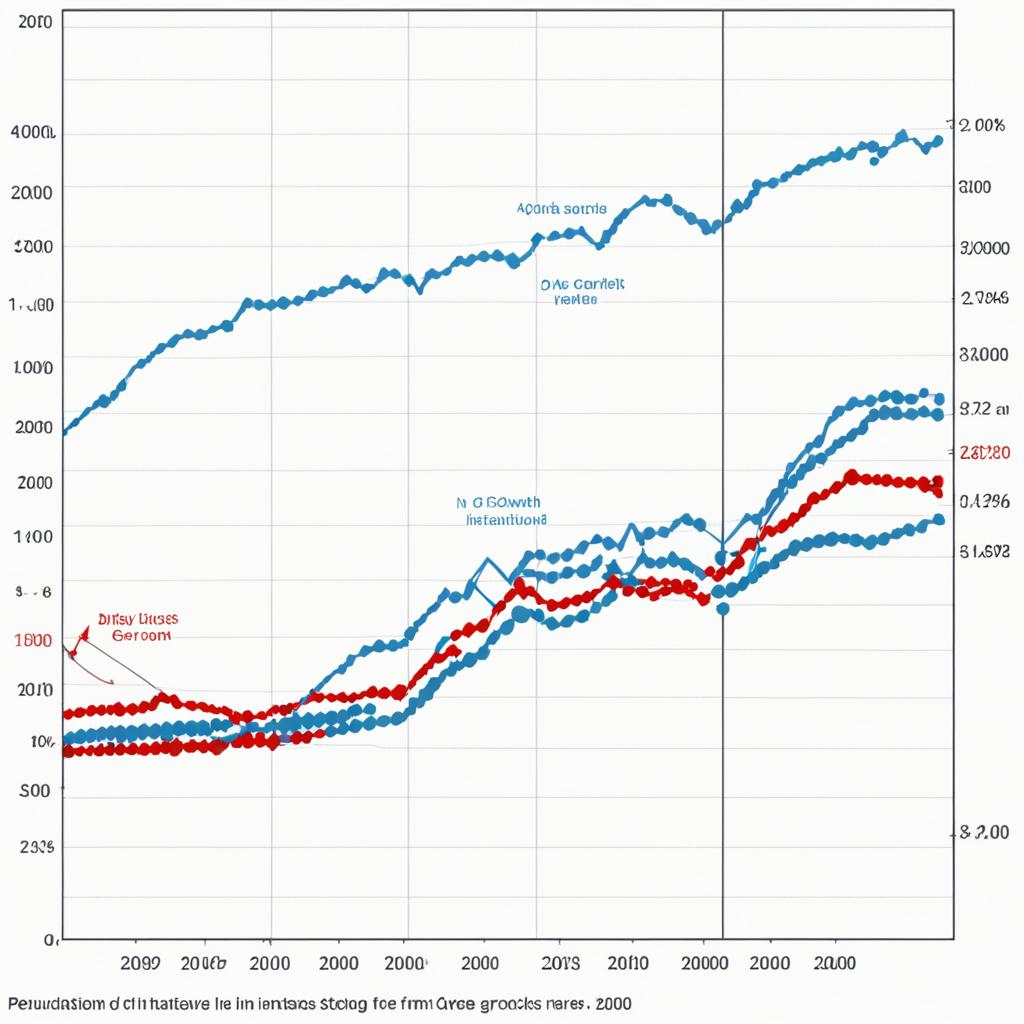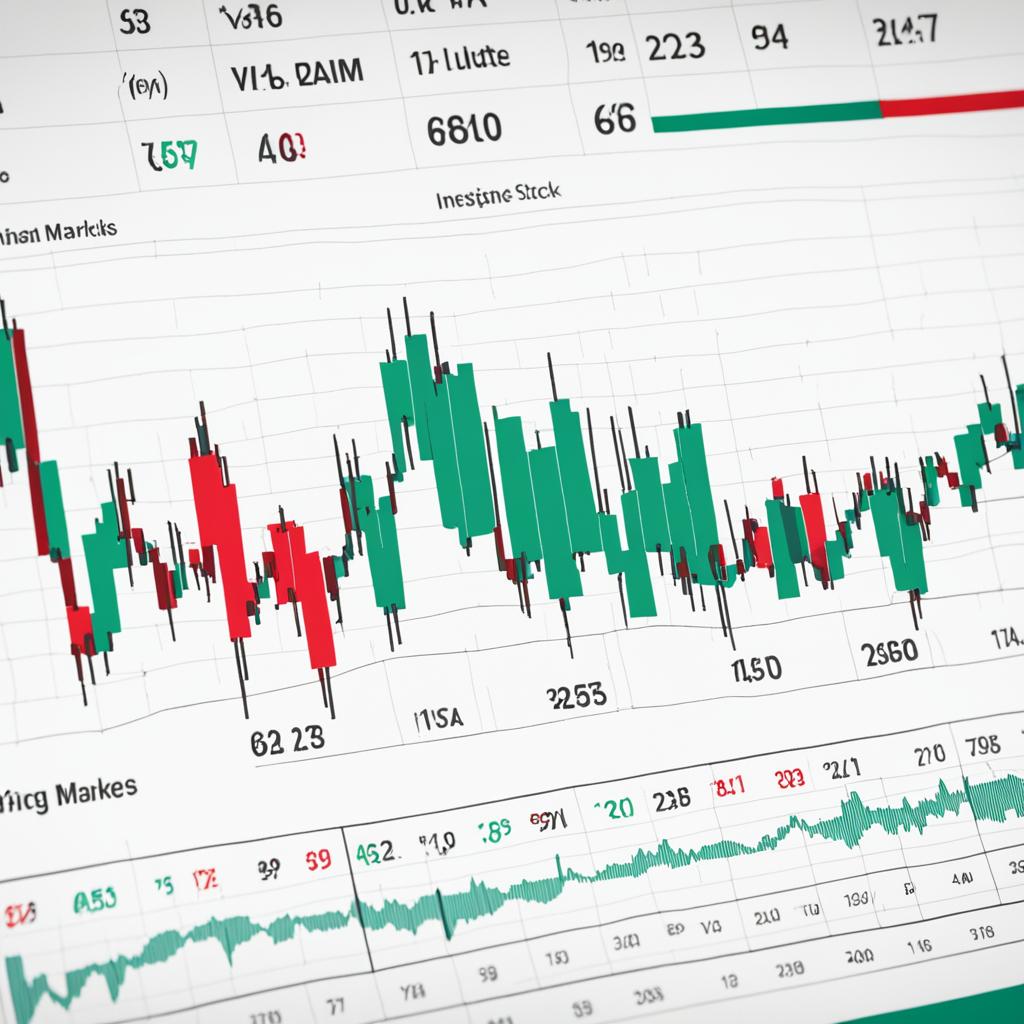Are you looking to diversify your investment portfolio and gain exposure to global markets? Investing in foreign stocks may be the answer. In this article, I will share my top tips on how to invest in foreign stocks and potentially enhance your investment strategy.
Many financial advisors recommend allocating a percentage of your portfolio to foreign stocks. Conservative investors are often advised to have a 5-10% allocation, while aggressive investors can go up to 25%. This diversification can help reduce the risk associated with being solely invested in your domestic market and provide opportunities for growth in other countries.
Investing in foreign stocks offers several benefits. It allows you to tap into the growth and economic opportunities of other countries. It also provides exposure to different industries and sectors that may not be available in your home country. Additionally, investing in foreign stocks can be a way to take advantage of fluctuations in currency exchange rates, potentially boosting your returns.
Key Takeaways:
- Diversifying your portfolio by investing in foreign stocks can mitigate risk.
- Allocate a percentage of your portfolio to foreign stocks based on your risk tolerance.
- Investing in foreign stocks provides exposure to global growth and economic opportunities.
- Fluctuations in currency exchange rates can impact your returns when investing in foreign stocks.
- Consult with a financial advisor to make informed investment decisions.
Why Invest in Foreign Stocks?
Investing in foreign stocks provides numerous benefits that can enhance your investment portfolio and financial success. Let’s explore the advantages of investing in foreign markets:
- Diversification: Investing in foreign stocks allows you to diversify your portfolio, reducing the risk associated with being solely invested in your domestic market. By spreading your investments across different countries and industries, you can protect against the volatility of individual markets and sectors.
- Global Market Exposure: When you invest in foreign stocks, you gain exposure to the growth and potential economic opportunities of other countries. This exposure allows you to leverage global market trends and participate in the success stories of thriving international businesses.
- Currency Exchange Rate Fluctuations: Investing in foreign stocks also presents an opportunity to take advantage of fluctuations in currency exchange rates. As currencies rise and fall in value, you can potentially benefit from favorable exchange rates, leading to increased investment returns.
To illustrate the benefits of investing in foreign markets, consider the following table:
| Country | Annualized Returns (1993-2024) |
|---|---|
| United States | 7% |
| Australia | 6.2% |
| Germany | 5.4% |
| France | 4.8% |
Note: The table above represents a sample of annualized returns and is not indicative of current or future performance.
Investing in foreign stocks grants you the opportunity to diversify, access global market growth, and potentially benefit from currency exchange rate fluctuations. By considering these advantages and conducting thorough research, you can make informed investment decisions that align with your financial goals.
Risks of Foreign Investing
While there are potential benefits to investing in foreign stocks, it’s important to be aware of the risks involved. Investing in foreign markets comes with its own set of challenges that every investor should consider. Here are some key risks to keep in mind:
- Volatility in Emerging Markets: Emerging markets can experience abrupt changes in market value, making them more volatile compared to developed markets. Political instability, regulatory changes, and economic factors can contribute to this volatility.
- Political Risks: Investing in foreign stocks exposes investors to political risks that can impact the value of their investments. Political instability, changes in government policies, and geopolitical tensions can have a significant effect on the performance of foreign stocks.
- Limited Information: Access to accurate and timely information about foreign companies can be limited, especially for companies based in distant markets. Inadequate information can make it challenging to assess the fundamental performance and potential risks of these companies.
- Currency Risk: Investing in foreign stocks also involves currency risk. Changes in exchange rates can impact the value of investments, as foreign currencies may appreciate or depreciate relative to the investor’s home currency.
It’s important for investors to carefully evaluate these risks and consider their risk tolerance and investment goals before venturing into foreign markets. Being informed and staying updated on international economic and political developments can help mitigate some of the risks associated with foreign investing.
| Risks of Foreign Investing | Impact |
|---|---|
| Volatility in Emerging Markets | Higher potential for sharp market fluctuations and value swings. |
| Political Risks | Uncertainty caused by changes in government policies, political instability, and geopolitical tensions. |
| Limited Information | Challenges in obtaining accurate and timely information about foreign companies, which can hinder comprehensive analysis and decision-making. |
| Currency Risk | The impact of currency exchange rate fluctuations on the value of investments. |

Ways to Invest in Foreign Stocks
When it comes to investing in foreign stocks, there are several avenues you can explore. Here are some popular ways to diversify your portfolio and gain exposure to international markets:
- Purchasing American Depository Receipts (ADRs): ADRs represent shares of foreign companies and can be traded on U.S. exchanges. This option allows you to invest in international companies without the need for a foreign brokerage account.
- Investing in Global Depository Receipts (GDRs): Similar to ADRs, GDRs also represent shares of foreign companies but are traded on international exchanges. This option offers a broader range of investment opportunities.
- Engaging in Foreign Direct Investing: You can opt for a global account with a broker in your home country, which allows you to invest directly in foreign stocks. Alternatively, opening an account with a local broker in the target country can provide you with even more access to international investment opportunities.
- Investing in Global Mutual Funds or Exchange-Traded Funds (ETFs): These investment vehicles provide exposure to international equities by pooling funds from multiple investors. Global mutual funds and ETFs offer the benefits of diversification and professional management.
- Considering Multinational Corporations (MNCs): Another option is to invest in multinational corporations that generate a significant portion of their sales from overseas markets. These companies often have a strong presence in multiple countries, offering exposure to international growth.
By utilizing any of these strategies, you can tap into the potential of foreign markets and enhance the diversification of your investment portfolio.
Investing in Foreign Stocks Table:
| Investment Strategy | Key Features |
|---|---|
| Purchasing ADRs | – Trades on U.S. exchanges – Represents shares of foreign companies – Convenient access to international companies |
| Investing in GDRs | – Trades on international exchanges – Provides broader range of investment opportunities – Exposure to global markets |
| Engaging in Foreign Direct Investing | – Global account with a broker in your home country – Local brokerage account in the target country – Direct access to foreign stocks |
| Investing in Global Mutual Funds or ETFs | – Diversification through pooled funds – Professional management – Exposure to international equities |
| Considering Multinational Corporations (MNCs) | – Sales from multiple overseas markets – Established presence in international markets – Potential for international growth |

How Much Growth Have International Stocks Experienced?
International stocks have shown varying levels of growth across different markets. From 1993 to 2024, the annualized returns for various equity markets ranged from 2.8% to 7%. It’s important to note that these returns are not consistent year to year and can be influenced by various factors.
During this period, the United States and Australia emerged as the top-performing markets, experiencing significant growth in their stock markets. On the other hand, countries like Italy and Singapore had relatively weaker growth rates.
This data highlights the dynamic nature of the international stock market, where growth rates fluctuate and opportunities arise in different regions at different times. It underscores the importance of staying informed and conducting thorough research before making investment decisions.

“International stocks offer investors a chance to tap into the growth potential of global markets, diversify their portfolios, and potentially enhance returns. However, it’s crucial to understand that past performance is not indicative of future results. It’s essential to assess the current market conditions and engage in careful analysis before investing in international stocks.”
Investors should consider factors such as economic conditions, political stability, and market regulations when assessing the growth potential of international stocks. Additionally, staying up-to-date with global economic trends and market news can provide valuable insights into emerging investment opportunities.
Comparing Growth Rates in Different Equity Markets:
| Market | Annualized Return (1993-2024) |
|---|---|
| United States | 7% |
| Australia | 6.5% |
| Germany | 5.6% |
| Japan | 4.2% |
| United Kingdom | 3.9% |
| Italy | 3.3% |
| Singapore | 2.8% |
These figures provide a snapshot of the growth rates experienced in different equity markets. However, it’s important to conduct thorough research and analysis to determine the current growth prospects and investment potential of individual markets.
Risk Characteristics of International Equity Markets
Investing in international equity markets exposes investors to various risk characteristics that can influence investment outcomes. These risk factors are influenced by multiple factors, such as economic conditions, political stability, and market regulations. Understanding these risks is crucial for making informed investment decisions. In this section, I will discuss the risk characteristics of global equity markets, shedding light on the factors that impact investment performance.
Standard Deviation and Risk Measurement
One commonly used metric for measuring risk in equity markets is standard deviation. This statistical measure quantifies the extent to which returns vary from the average return. In international equity markets, most countries’ annual returns exhibit a standard deviation in the 20%-30% range, indicating moderate to high variability.
The U.S. Equity Market
The U.S. equity market stands out for its risk characteristics. It has consistently delivered the highest returns compared to other international markets. Additionally, the U.S. equity market has demonstrated the highest Sharpe ratio, which measures risk-adjusted returns. This implies that investors in the U.S. market have enjoyed better risk-adjusted returns compared to their counterparts in other markets.
Volatility and Poland
Among the international equity markets, Poland stands out for its significantly higher volatility compared to other markets. The Polish market experiences greater fluctuations in prices, making it a riskier investment option. Investors considering exposure to the Polish market should carefully assess their risk tolerance and diversification strategies.
Overall Risk Profile
When investing in global equity markets, it is essential to remember that risk characteristics vary across countries. Economic conditions, political stability, and market regulations all contribute to these variations. By understanding the specific risk profiles offered by different international equity markets, investors can allocate their portfolios effectively and manage their risk exposure.
In the next section, we will explore the impact of investing in foreign stocks over time, offering insights into the long-term benefits and considerations.

The Impact of Investing Over Time
Investing in foreign stocks over time can have a significant impact on your portfolio. By consistently investing a fixed amount over a 30-year period, you can benefit from the performance of different markets and potentially achieve substantial growth. It’s fascinating to see how investing in foreign stocks, such as Indian stocks, could have outperformed investments in U.S. stocks over this timeframe.
Although market fluctuations are inevitable, the overall trend shows that most countries outperform holding cash. This demonstrates the potential for long-term growth and the retention of purchasing power through investing in foreign stocks.
The Power of Consistent Investing
When you invest in foreign stocks regularly over time, you take advantage of dollar-cost averaging. This investment strategy involves purchasing shares at regular intervals, regardless of market conditions. By doing so, you buy more shares when prices are low and fewer shares when prices are high. This helps to mitigate the impact of short-term market volatility and can lead to favorable returns over the long term.
Consistent investing also allows you to benefit from compounding returns. As your investments grow, the returns generated can be reinvested and generate further returns. Over time, the compounding effect can significantly boost the value of your portfolio.
The Benefits of International Diversification
Investing in foreign stocks provides diversification benefits. Different markets may perform differently at any given time, and by spreading your investments across countries and regions, you can minimize the risk associated with being solely invested in one market.
International diversification also provides exposure to the growth and potential economic opportunities of other countries. When one market is underperforming, it’s possible that another market is experiencing growth, helping to balance out your overall portfolio performance.
The Importance of Monitoring and Reviewing
While investing in foreign stocks over time can be lucrative, it’s essential to actively monitor and review your investments. Keep track of market trends, economic conditions, and any political or regulatory changes that may impact the performance of your investments.
Regularly reviewing your portfolio and rebalancing it as needed is crucial to maintaining the desired asset allocation and risk profile. By reallocating funds from well-performing markets to those with potential future growth, you capitalize on investment opportunities and manage risk effectively.
| Key Takeaways |
|---|
| Investing in foreign stocks over time can lead to different results than a single investment. |
| Consistent investing and dollar-cost averaging can mitigate the impact of market volatility and lead to favorable long-term returns. |
| International diversification provides exposure to the growth and economic opportunities of different countries. |
| Regular monitoring and review of investments are crucial to adapt to market trends and manage risk effectively. |
Buying and Selling Foreign Currency (Forex)
If you’re looking for another way to invest in foreign markets, you may want to consider forex trading. Forex trading involves buying and selling foreign currencies in the foreign exchange market.
When trading forex, currencies are traded in pairs, with one currency being exchanged for another. This allows investors to take advantage of fluctuations in exchange rates and potentially profit from currency movements.
There are different ways to trade forex:
- Spot Trading: This involves buying or selling currencies for immediate delivery. Spot trading is the most common form of forex trading and offers the most liquidity.
- Forward Trading: In forward trading, contracts are entered into to buy or sell currencies at a future date at a predetermined price. This allows investors to hedge against future currency fluctuations.
- Future Trading: Forex futures are contracts to buy or sell currencies at a specific price on a specified date in the future. Futures contracts are standardized and traded on regulated exchanges.
Forex trading operates 24/7, as the forex market is open around the clock. This allows investors to trade currencies at their convenience, regardless of their time zone.
To engage in forex trading, you will need to open an account with a brokerage that offers forex trading services. The brokerage will provide you with access to the forex market and the necessary trading platform to execute trades.
As with any investment, it’s important to understand the potential risks and rewards of forex trading. Currencies can be volatile, and exchange rates can fluctuate based on various economic and geopolitical factors. It’s crucial to be well-informed and stay updated on market trends and news that can impact currency movements.
Below is an overview of bid and ask prices in forex trading:
| Bid Price | Ask Price |
|---|---|
| The price at which you can sell a currency pair | The price at which you can buy a currency pair |
Understanding bid and ask prices is essential for executing forex trades effectively.
Overall, forex trading can be a dynamic and potentially lucrative investment strategy. However, it requires careful analysis, risk management, and a deep understanding of the global currency markets.
Stay informed, stay strategic, and enjoy the excitement of participating in the world’s largest financial market!
Benefits and Drawbacks of Investing in Currency
Investing in currency offers several advantages and disadvantages to consider. Let’s explore both sides of the coin.
Advantages of Investing in Currency
1. Convenience: Investing in currency provides the flexibility of 24/7 trading, allowing you to capitalize on market opportunities regardless of your time zone. This convenience makes it easier to manage your investments and react to changing market conditions.
2. Diversification: Including currency investments in your portfolio can help diversify your holdings and reduce risk. Currencies can behave differently from other asset classes, providing a potential hedge against market volatility.
3. Potential Lower Costs: Compared to other investment options, currency investing can have lower transaction costs, especially if you choose to trade currencies using exchange-traded funds (ETFs) rather than engaging in direct forex trading.
4. Hedging Against Inflation: Investing in foreign currencies can serve as a hedge against domestic inflation. If your home currency depreciates, the value of your foreign currency investments may increase, helping to protect your purchasing power.
5. Global Exposure: By investing in currency, you gain exposure to global economic and geopolitical factors that can impact exchange rates. This exposure can provide unique investment opportunities and potentially higher returns.
Disadvantages of Investing in Currency
1. Volatility and Risk: Currency markets can be highly volatile, driven by various economic, political, and geopolitical factors. Sudden fluctuations in exchange rates can result in significant gains or losses, making currency investments riskier compared to other investment strategies.
2. Lack of Intrinsic Value: Unlike stocks or real estate, currencies do not generate income or possess intrinsic value. Their value is solely based on supply and demand dynamics, which can make currency investments more speculative in nature.
3. Complex Market Factors: Understanding the forex market requires knowledge of economic indicators, central bank policies, and global events. Keeping up with these factors and their potential impact on currency values can be challenging and time-consuming.
4. Limited Investment Opportunities: Currency investments are primarily limited to forex trading or ETFs that track foreign currencies. Compared to other asset classes, the range of available currency investment options may be more limited.
5. Geopolitical and Economic Factors: Currency values can be heavily influenced by geopolitical tensions, economic uncertainties, and policy changes. Keeping up with these factors and accurately predicting their impact on currency markets can be difficult.
“Currency investing can offer the convenience of 24/7 trading and the potential for global exposure, but it also carries higher risks and requires a solid understanding of market dynamics.” – [Author’s Name]
It’s important to carefully weigh the advantages and disadvantages of investing in currency and assess whether it aligns with your investment goals and risk tolerance. Consider seeking guidance from a financial advisor to navigate the complexities of the forex market and make informed investment decisions.
How to Invest in Currency
Investing in currency can be a lucrative venture, providing opportunities for diversification and potential profits. Here are two ways you can invest in currency:
- Exchange-Traded Funds (ETFs):
- Forex Trading:
Exchange-traded funds (ETFs) offer a convenient and simplified way to invest in currency. These funds track the performance of foreign currencies, allowing you to gain exposure to different currencies without the complexities of direct forex trading. ETFs provide diversification and typically have lower fees compared to other investment options.
Forex trading involves buying and selling currencies in the foreign exchange market. It allows for more active trading and the potential for higher returns. As a forex trader, you can take advantage of fluctuations in currency exchange rates to profit. However, forex trading requires in-depth knowledge of the market, technical analysis skills, and careful risk management.
When investing in currency, it’s essential to consider several factors:
- Fees: Be aware of any fees associated with currency investments, such as expense ratios for ETFs or trading commissions for forex trading.
- Liquidity: Ensure that the currency investment option you choose has sufficient liquidity, allowing you to buy or sell your investment without significant price impact.
- Trading Volumes: Evaluate the trading volumes of the currency you plan to invest in. Higher trading volumes generally indicate greater market liquidity and smoother trading execution.
By understanding these investment options and considering the relevant factors, you can make informed decisions when investing in currency.
| Investment Method | Advantages | Disadvantages |
|---|---|---|
| Exchange-Traded Funds (ETFs) |
|
|
| Forex Trading |
|
|
Important Considerations when Investing in Currency
“Investing in currency can be a rewarding endeavor, but it’s crucial to be well-informed and cautious. By carefully weighing your options, understanding the market, and managing risks effectively, you can navigate the world of currency investments successfully.” – Expert Forex Trader
Always remember that currency investments come with inherent risks and should align with your investment objectives and risk tolerance. It’s prudent to educate yourself, seek professional advice if necessary, and stay updated with market trends and news that can impact currencies.
Considerations for Investing in Foreign Stocks and Currency
When considering investing in foreign stocks and currency, there are several important factors to keep in mind. These considerations can help you make informed decisions and increase your chances of success in the global market.
- Investment Objectives: Before venturing into foreign investments, define your investment objectives. Are you looking for long-term growth, income generation, or capital preservation? Clearly identifying your goals will help you determine the right investment strategy.
- Risk Tolerance: Assess your risk tolerance and determine the level of volatility you are comfortable with. Remember that foreign stocks and currency can be subject to higher levels of risk due to factors such as economic fluctuations and political instability.
- Market Understanding: Take the time to understand the political and economic conditions of the countries where you plan to invest. This includes monitoring factors such as government policies, trade relationships, and geopolitical events that may impact your investments.
- Financial Advisor: Consider working with a financial advisor who specializes in international investments. A knowledgeable advisor can provide valuable guidance, help you navigate complex markets, and ensure your investment decisions align with your financial goals.
- Portfolio Review and Rebalancing: Regularly review and rebalance your portfolio to align with your investment goals and ensure proper diversification. This involves assessing the performance of your foreign stocks and currency investments and adjusting your allocation as needed.
By carefully considering these factors, you can enhance your understanding of the risks and opportunities associated with investing in foreign stocks and currency. Doing so will enable you to make well-informed investment decisions that align with your financial objectives.
“Diversification is an essential aspect of investing in foreign stocks and currency. It helps spread risk and allows for exposure to different economies and industries.”
Conclusion
Investing in foreign stocks and engaging in forex trading can provide valuable opportunities for diversifying your portfolio and gaining exposure to global markets. By investing in foreign stocks, you can take advantage of the growth potential and economic opportunities offered by other countries. Additionally, investing in foreign currency through forex trading allows you to participate in the dynamic foreign exchange market.
However, it is crucial to understand the risks involved and carefully consider your investment objectives and risk tolerance before diving into these markets. Volatility, political risks, and currency fluctuations are factors to be mindful of when investing in foreign stocks and currency. Working with a skilled financial advisor can provide you with the necessary guidance and help you navigate through the complexities of these investments.
In conclusion, investing in foreign stocks and currency can be a worthwhile addition to your investment strategy. It allows you to diversify your portfolio, potentially achieve higher returns, and access global market opportunities. But remember, thorough research, careful analysis, and ongoing monitoring are essential to make informed investment decisions in the foreign stocks and forex markets.
FAQ
How do I invest in foreign stocks?
There are several ways to invest in foreign stocks. One option is to purchase American Depository Receipts (ADRs) or Global Depository Receipts (GDRs) that represent shares of foreign companies and are traded on U.S. or international exchanges. Another option is to engage in foreign direct investing through a global account with a broker or by opening an account with a local broker in the target country. You can also invest in global mutual funds or exchange-traded funds (ETFs) that provide exposure to international equities. Lastly, you can consider investing in multinational corporations (MNCs) that have a significant portion of their sales from overseas markets.
Why should I invest in foreign stocks?
Investing in foreign stocks allows you to diversify your portfolio, reduce risk, and gain exposure to the growth and potential economic opportunities of other countries. It can also help you take advantage of fluctuations in currency exchange rates.
What are the risks of investing in foreign stocks?
While there are potential benefits, investing in foreign stocks also carries risks. Emerging markets can be volatile, political risks can impact investments, and inadequate information from distant markets can pose challenges. Currency risk is another consideration, as changes in exchange rates can affect the value of investments.
How much growth have international stocks experienced?
The growth of international stocks can vary across different markets. From 1993 to 2024, the annualized returns for various equity markets ranged from 2.8% to 7%. The U.S. and Australia had the highest returns, while Italy and Singapore had relatively weaker growth.
What are the risk characteristics of international equity markets?
The risk characteristics of international equity markets can differ based on factors such as economic conditions, political stability, and market regulations. Standard deviation is often used to measure risk, with most countries’ annual returns having a standard deviation in the 20%-30% range. The U.S. equity market has shown the highest returns and the highest Sharpe ratio, indicating better risk-adjusted returns.
What is the impact of investing in foreign stocks over time?
Investing in foreign stocks over a 30-year period can yield different results compared to a single investment. By investing regularly, the portfolio value can vary based on the performance of different markets. It’s important to note that past performance is not indicative of future results.
How do I buy and sell foreign currency (forex)?
Buying and selling foreign currency, also known as forex trading, can be done through a brokerage. Forex trading takes place in the foreign exchange market and involves trading currency pairs. There are different ways to trade forex, including spot trading, forward trading, and future trading.
What are the benefits and drawbacks of investing in currency?
Investing in currency offers advantages such as convenience, diversification, and potentially lower costs compared to other investments. However, it can also be volatile and carry higher risks. Understanding the forex market and its relationship to broader economic and geopolitical factors is important.
How can I invest in currency?
You can invest in currency through exchange-traded funds (ETFs) that track foreign currencies or through direct forex trading. ETFs provide a convenient and less complex way to invest in currency, while forex trading allows for more active trading and potentially higher returns. It’s important to understand the different options and consider factors such as fees, liquidity, and trading volumes.
What should I consider when investing in foreign stocks and currency?
When investing in foreign stocks and currency, it’s important to consider factors such as your investment objectives, risk tolerance, and understanding of the market. It’s also crucial to stay informed about the political and economic conditions of the countries you’re investing in. Working with a financial advisor can provide valuable guidance.
Should I invest in foreign stocks and currency?
Investing in foreign stocks and currency can be a valuable addition to a diversified portfolio. It offers opportunities for growth and exposure to global markets. However, it’s important to be aware of the risks involved and to carefully consider your investment objectives and risk tolerance. Working with a financial advisor can provide valuable guidance and help you make informed investment decisions.
Our Friends
- https://www.investopedia.com/articles/investing/032615/how-trade-foreign-stocks.asp
- https://ofdollarsanddata.com/international-stocks/
- https://smartasset.com/investing/investing-in-currency
Money posts:
 How to Invest $1 Million Dollars: Strategies and Tips for Growth and Security
How to Invest $1 Million Dollars: Strategies and Tips for Growth and Security
 12 Investments with High Returns (10% ROI or Better) in 2024
12 Investments with High Returns (10% ROI or Better) in 2024
 12 Investments with High Returns (10% ROI or Better) in 2024
12 Investments with High Returns (10% ROI or Better) in 2024
 Best Stock Apps for Kids – Investing (2024)
Best Stock Apps for Kids – Investing (2024)
 9 Best Penny Stock Trading Apps in 2024
9 Best Penny Stock Trading Apps in 2024
 What is Insider Trading and How Do You Avoid It?
What is Insider Trading and How Do You Avoid It?
 13 Best Compound Interest Accounts & Investments (2024)
13 Best Compound Interest Accounts & Investments (2024)
 17 Best Alternative Investments To Consider in 2024
17 Best Alternative Investments To Consider in 2024

